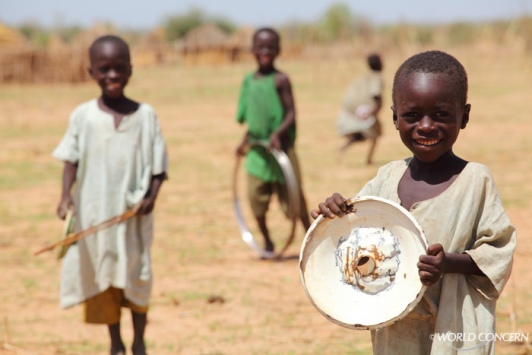
Take a few moments and imagine picking up and leaving your house – right now – and
having no tools to rebuild your life.
I’ve met dozens of refugees and displaced people over the
last couple of weeks in Eastern Chad who have faced this reality. Some have
been at it for seven years. Their position leaves them perpetually vulnerable.
They’re in a country where:
- 4 out of 5 people live off the land to farm or
raise livestock - 62% of people are in extreme poverty, making
less than $1.25 a day - Only one in four people in can read and write
And for the people I’ve met, it’s worse. My organization
estimates that almost zero percent of women and 12% of men can read and write.
And nearly all of them need land to make an income.
The war in Darfur, Sudan, and the associated war in Chad,
does not seem to be ending soon. What that means is that these 500,000 refugees
or displaced people in Chad are unlikely to own land anytime soon.
They are people like Hadidja, a 37-year-old divorced mother
of three children. When she fled Sudan, her home and village were burning. Much
of her family had been killed. She truly had nothing.
Humanitarian organizations want to – and need to – do more
than give out food. And thankfully, we’re seeing that we can come alongside
Hadidja and so many others with some innovative solutions.
For example, World Concern – a proud partner of One Day's Wages – has seen success in the following areas that are more than about hand-outs:
- Empowering refugees and displaced people
to start small businesses. For example, if they were tailors before, they would
get a grant for a sewing machine - Working with local landowners to rent or
offer surplus land to refugees for farming - Putting people to work doing community
service projects, then giving them an opportunity to buy what they need in a
market
Hadidja was able to buy food, spices and clothes this week
for her family, after working for it doing community service, called Cash for
Work. For Hadidja, these are critical supplies, for someone who has next to
nothing.
Hadidja was proud to be able to work, to do something to
provide for her family. She says that perhaps the best thing she received from
her time working, after losing everything, was a taste of dignity.
Derek Sciba – a member of One Day's Wages – works for
World Concern, a Christian humanitarian organization and proud partner of ODW.

